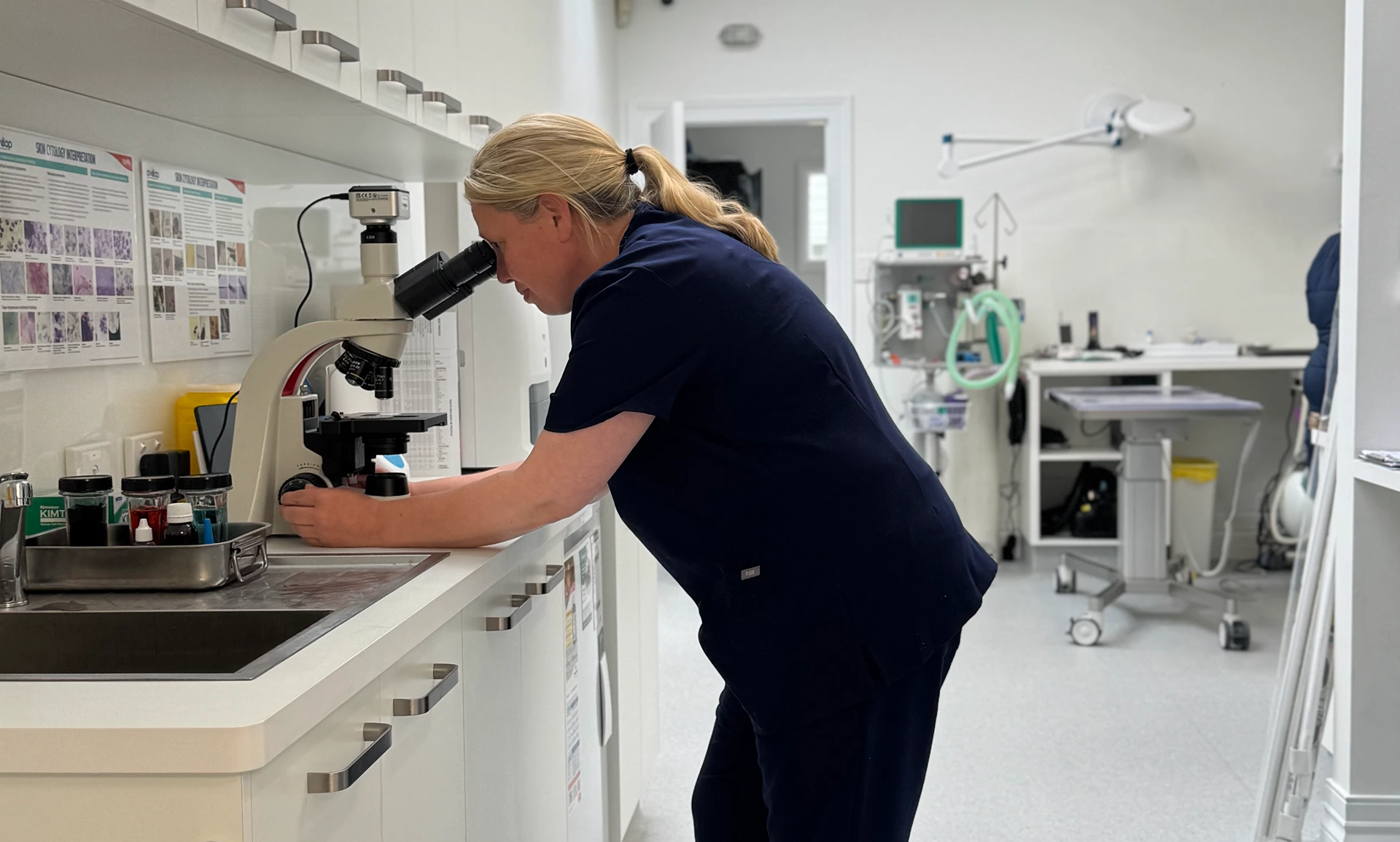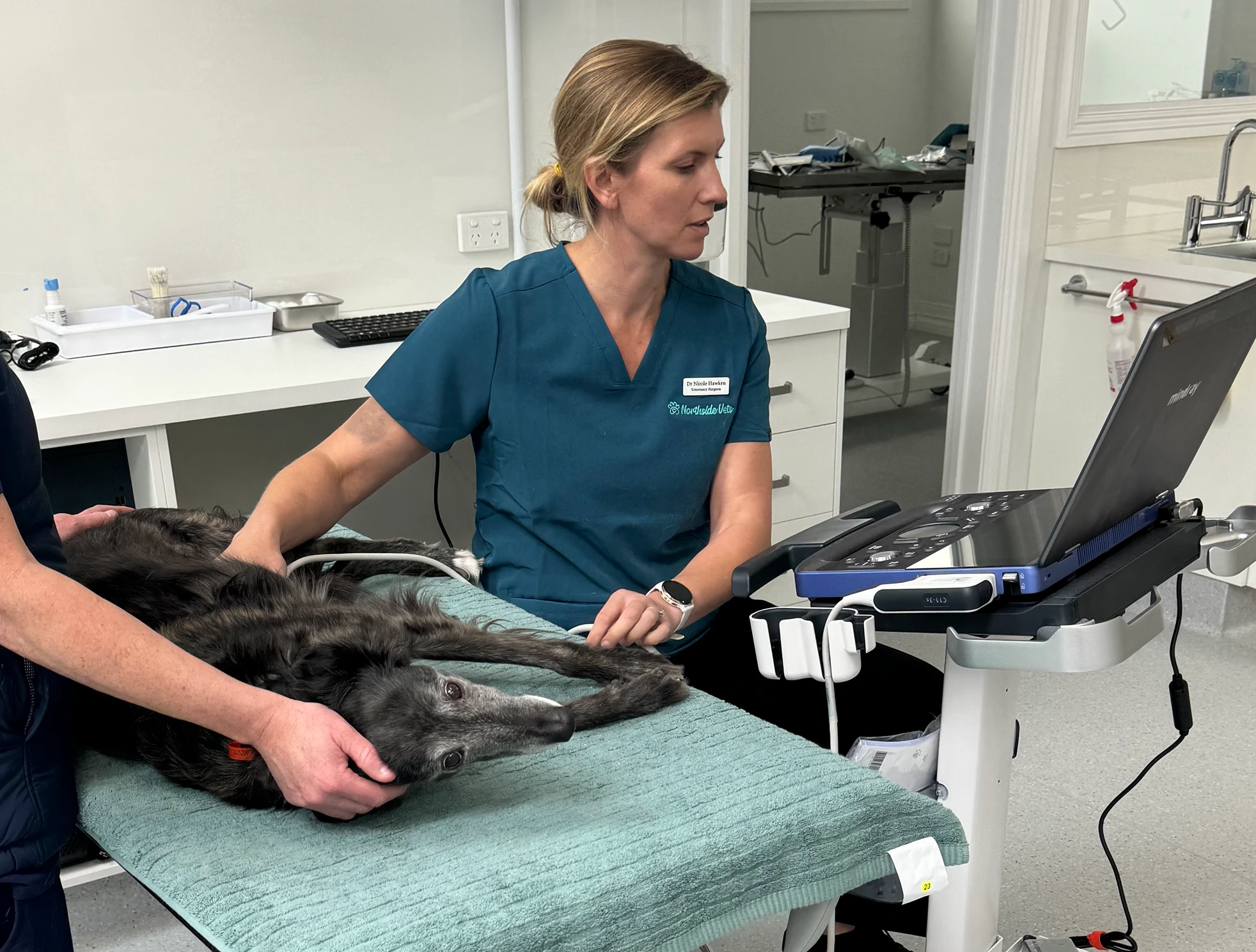Vet Diagnostics & Testing in Melbourne
The sooner we find out what’s going on, the better the outcome.


What is vet diagnostics and testing?
The tools and tests we use to diagnose illness and maintain your pet’s health.
- Blood and urine tests to assess organ function, detect infections, or monitor ongoing conditions.
- X-rays and ultrasound to visualise bones, joints, and internal organs.
- Microscopic exams of skin, ear swabs, or tissue samples.
- Biopsies and lab testing for more in-depth analysis of abnormal growths or symptoms.
- Monitoring tests for pets on long-term medications or with chronic conditions.
Our veterinary diagnostic services
FAQs
Even when your pet appears perfectly well, blood tests can provide important insights that aren't visible on the outside.
Routine blood work helps us establish a baseline of what's normal for your pet. This becomes incredibly valuable for comparison if they become unwell in the future. Every animal is unique, and knowing their normal levels allows us to spot subtle changes much earlier.
It also helps us detect underlying issues that may not yet be causing symptoms, such as early kidney or liver changes, hormonal imbalances, or the first signs of diabetes. Early detection gives us the best chance to manage conditions before they become more serious.
Think of it as a proactive check-in, a simple way to support your pet’s long-term health and wellbeing.
A yearly blood test is recommended for most pets to establish a baseline and track changes over time.
If your pet is undergoing anaesthetic a blood test is helpful for more detailed information on their general health, and to guide decisions on anaesthetic medications and dosages on the day.
If your pet is not feeling well we may recommend a blood test at that time. A blood test can diagnose the issue, and/or rule out several possible causes for their symptoms. If they have had a recent blood test, performing another test when they are unwell may show up a recent change in eg. kidney, liver or red blood cell levels which can help guide diagnosis and treatment in a more accurate way.
Regular blood tests while on long term medication is useful - we usually suggest every 6-12 months depending on the condition and medication.
X-rays and ultrasounds are non-invasive and painless. To get the most out of the images it is imperative the patient lies still, so we may give a mild sedative to help keep them calm.
Blood and urine test results are usually available the same day or within 24 hours. Imaging results will be discussed with you on the day, and if the images are sent to a specialist for further evaluation their report usually takes a few days.
Biopsy results are returned typically in 2-7 days and we will call you to discuss the results when we receive them.
Cancer can be detected with a combination of blood and urine tests to evaluate organ function and rule out other causes of an animal's symptoms, imaging to localise the area of concern, and biopsies for laboratory confirmation of the diagnosis.
Occasionally more advanced diagnostics such as a CT scan is needed. This is something we can arrange for you.
Your Pet Deserves Answers and Fast
Whether your pet is unwell or you're staying ahead with routine care, our diagnostic services help us make informed, compassionate decisions together.
Contact us


